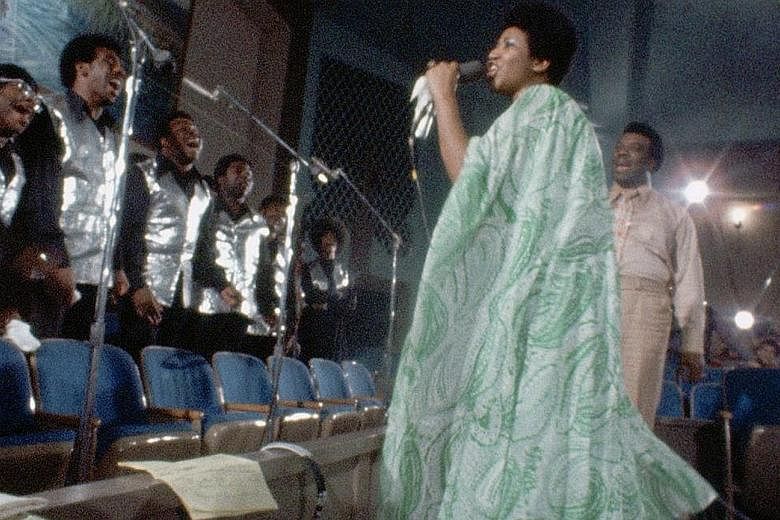REVIEW / CONCERT DOCUMENTARY
AMAZING GRACE (PG)
89 minutes/Now showing at The Projector/ 4 stars
The story: In 1972, over two nights at the New Temple Missionary Baptist Church in Los Angeles, Aretha Franklin recorded the live album that bears the same title as this movie. The album, released the same year, became her biggest-selling album. There were problems with the sound recording, which director Sydney Pollack tried but failed to fix. In the late 2000s music producer Alan Elliot found a solution and was ready to release the film, when the project hit another snag. Franklin, for personal reasons, sent lawyers to block the film's release. Last year , after her death, her relatives gave the green light.
The religious tone of the music is appropriate given that this is a film resurrected from the tomb.
Also, because it languished in the vaults for more than four decades, it is also something of a time-travel device, offering a look at the Queen of Soul as she was at 29.
She was, by then, a star with a roster of hit singles, including Do Right Woman, Do Right Man; I Never Loved A Man The Way I Love You; (You Make Me Feel Like) A Natural Woman and the anthem that would be associated with her, Respect.
Franklin does not cover secular hits here. The closest she gets is when she does a lyrically altered version of Carole King's You've Got A Friend, arranged as a medley with the hymn Precious Lord, Take My Hand.
Those discovering her gospel material are in for a treat because even if the songs are unfamiliar, there is her resplendent voice, rich and throaty in the low registers, pure and clear in the higher ones. As some people say, she could sing the telephone book and make it sublime.
Backing her is the Southern California Community Choir. With its help, she proudly shows the debt her vocal style owes to gospel.
Viewers also get the electricity that runs through the black church service: the teasingly slow build to a song's ecstatic climax, the call-and-response between singer and choir, the rapturous reception by the worshippers that has them sobbing and falling, overcome with emotion.
It is unclear if Pollack intended to showcase it, but the participant list offers a fascinating snapshot of Franklin's life up to that point.
In there is her father, pastor C.L. Franklin, the mesmerising orator who brought her along on his church tours and together became stars on the religious circuit. There is also James Cleveland, who guided her development as a pianist and sings with her and accompanies her on the keyboard.
As Cleveland says at the lectern, many gospel fans felt the singer had abandoned them to pursue secular success. As the concert shows, he says, "she never left the church".


